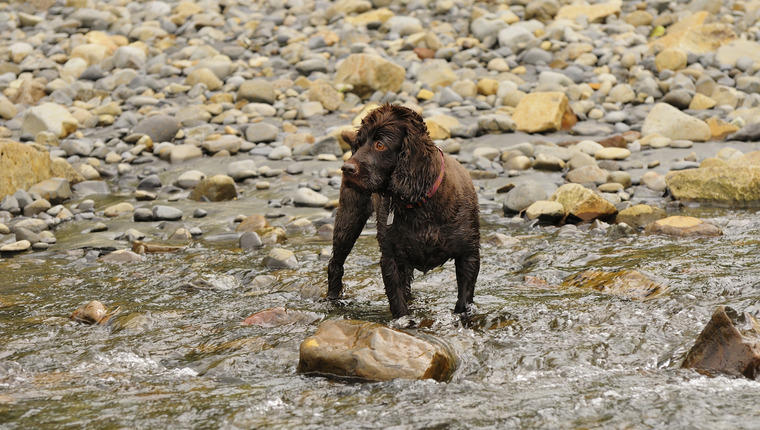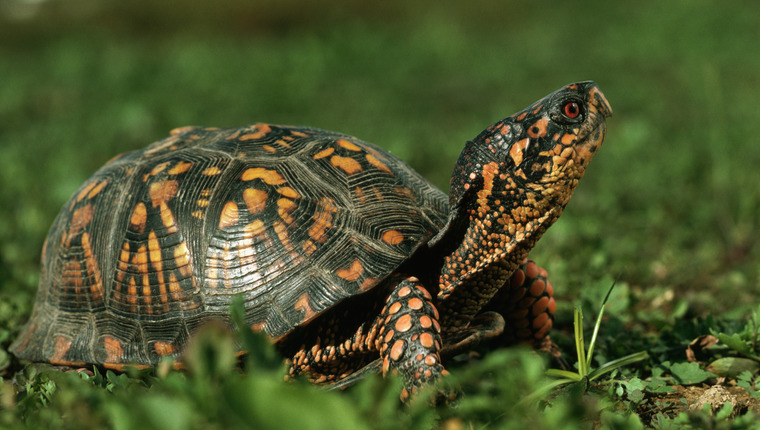
Dogs have supernatural noses. Unsurprisingly, their sense of smell has helped humans for millennia. But now, scientists are using dogs to help them protect natural environments and their inhabitants. In this case, one group of dogs is sniffing out a very important and vulnerable species: box turtles.
AVMA News reports on John Rucker, a retired high school English teacher from North Carolina. According to Rucker, one day one of his Boykin Spaniels brought a box turtle back home in his mouth. Then another. And another. Soon, Rucker started a turtle club at his school and took students out on trips looking for the sneaky turtles.
News of the terrapin-sniffing dogs started spreading. Eventually, universities started calling Rucker, wanting to use his dogs for research and conservation projects. Soon, Rucker turned to turtle sniffing full-time.
Why Box Turtles?
Box turtles have been listed as an endangered species for over 50 years. Habitat loss and illegal pet markets make conservation difficult. While strides have been made to preserve the turtles’ habitats, disease and humans have dwindled their populations.
Notably, these turtles are also ecological ‘sentinels’. According to the Wildlife Epidemiology Laboratory, “box turtles are long-lived, inhabit both aquatic and terrestrial habitats, and have relatively small home ranges making them a suitable candidate as a sentinel.” That’s to say, their health is a good bellwether for the overall health of an ecosystem.
As such, research teams and wildlife epidemiologists are very interested in studying box turtles. From Illinois to Colorado, scientists are tracking down the turtles with Rucker’s dogs’ help. Once a turtle is found, they’re given a full medical evaluation, tagged, and carefully returned to where they were found. In this way, researchers hope to preserve the species and understand their state of health.
Sniffing for Science
These days, Rucker lives off the grid in Montana. However, he spends a lot of his time traversing the country and sleeping out in the field. He even outfitted his truck with an air-conditioner attached to a generator to keep his dogs cool.
The research has its challenges, but Rucker’s dogs are doing essential work. With their help, researchers are gathering important data to help them preserve crucial habitats and species for future generations.








